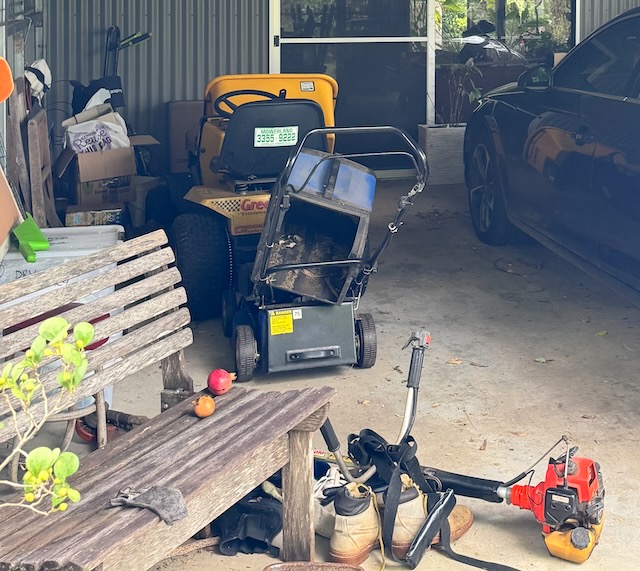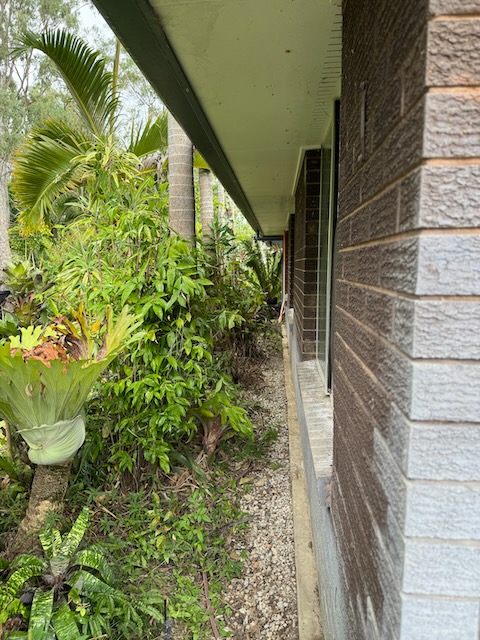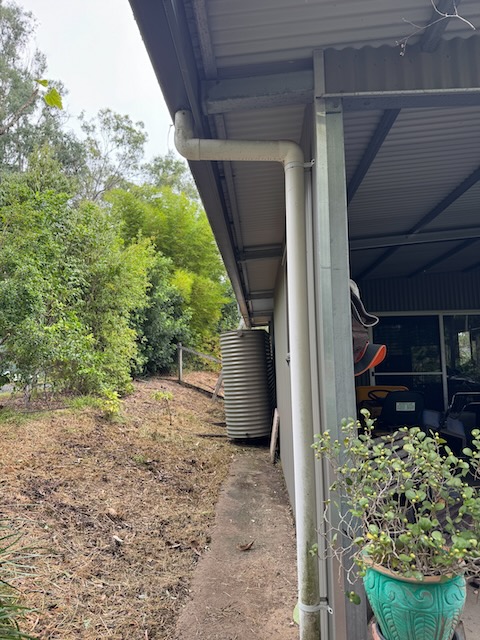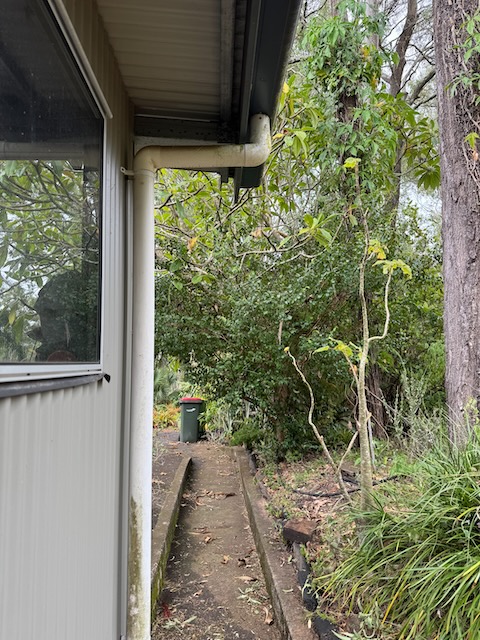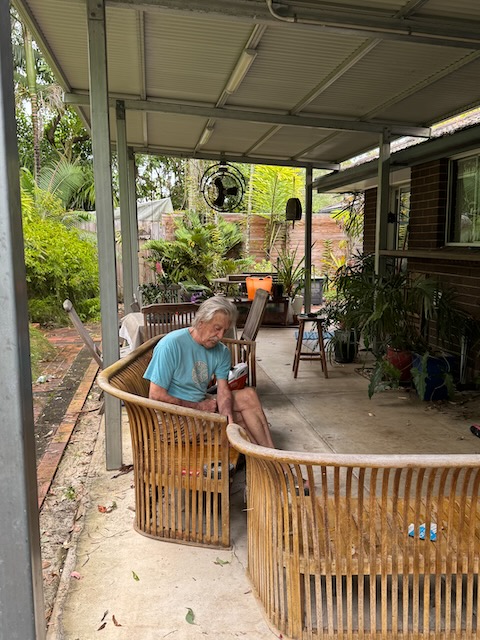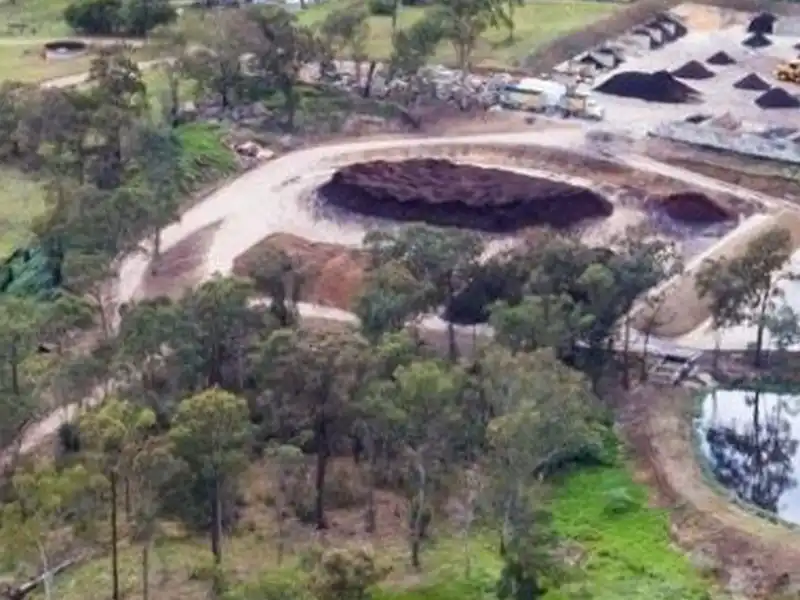By Annette Irish.
I’ve dubbed him ‘Alfie’ — mainly because, seriously, a cyclone in Brisbane? Do we believe? What’s it all about …… ‘Alfie’?
Where do we even begin? After three years of above-average rainfall—starting during COVID—our gardens have exploded with growth. Hiring garden maintenance services has been near impossible, and we’ve had our own share of health and family struggles. And now, just as we catch our breath, Alfie comes knocking.
So, Peter and I muster our energy and get to work, making our rural hideaway as safe as possible.
Living in the middle of a remnant forest on the side of Brisbane North’s main water catchment means we’re no strangers to a constant supply of kindling and natural mulch. The coming winds could bring down a lot of ‘hangers’—those precarious branches just waiting for the right gust to shake them to the ground.
And now, we wait. Fingers crossed that Cyclone ‘Alfie’ will be just a fleeting moment that we will recall as the first Cyclone in 50 years. Stay safe, everyone!
Public Warning: Where’s Your Gear?
- Avoid a domestic dispute!
- Do you know where all your garden tools and equipment are?
- Are engines primed with fuel? Are batteries charged?
- Make sure “IT” is stored back where “IT” belongs (yes, that includes topping up the fuel).
Annette and Pete’s Checklist: Preparing for ‘Alfie’s’ Onslaught
1. Secure the House
- First things first—ensure the house structure is sound and gutters and drainpipes are clear.
- Prune any overgrown plants that block access to the gutters.
2. Where is Your PPE – are you Storm Gear Ready?
- Insect repellent? Check.
- Gumboots, long sleeves and trousers, solid shoes, gloves, and a hat? Check.
- No thongs or bare feet folks – beware of Leptospirosis, a bacterial disease entering the body through cuts and scratches. It occurs during heavy downpours and is a risk to those involved in outdoor activities in warm and wet areas.
3. Clear Around the House
- Move all furniture, piles of rubbish—you know, all that ‘stuff’ we somehow accumulate against the house.
4. Clean Gutters and Roof
- Remove leaves, twigs, and debris to prevent blockages.
- Clean the gutters
- But don’t throw it all away! That organic matter is rich in humus—perfect for compost.
5. Protect Your Plants
- Gather your precious outdoor plants in a sheltered area to prevent wind damage and toppled pots.
6. Check Drains and Water Flow
- Ensure sub-surface drains are clear of blockages.
- Remove weeds and debris from surface drains and pits.
7. DIY Sandbags (No Lines Required)
- Don’t want to wait four hours for sandbags? Check your shed—bags of potting mix, fertiliser, or even old cement bags can work in a pinch.
8. Power Up the BBQ
- Check your gas bottle—because a hot meal during a blackout is a lifesaver.
9. Stock Up on Water
- Fill as many containers as possible with boiled and filtered water.
- Living off septic and tank water means no power = no showers, no shaving, and no flushing the loo. Trust us, you don’t want to be caught unprepared.
Click on any image to enter the lightbox


